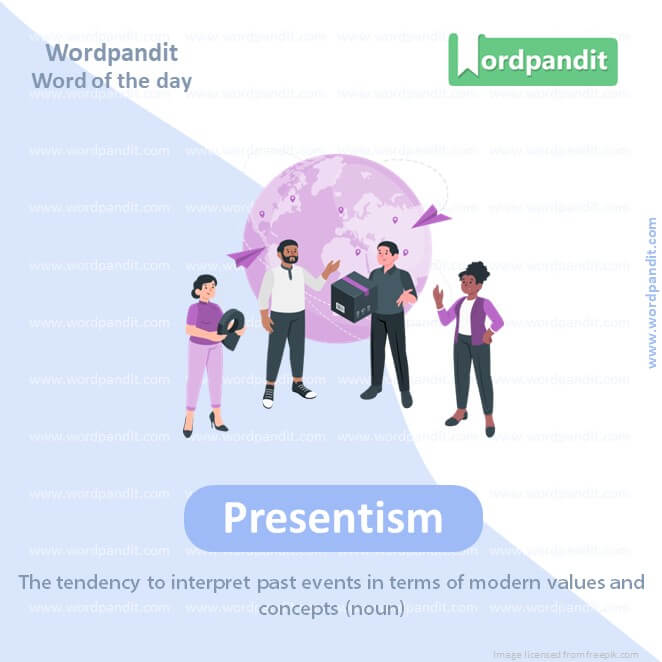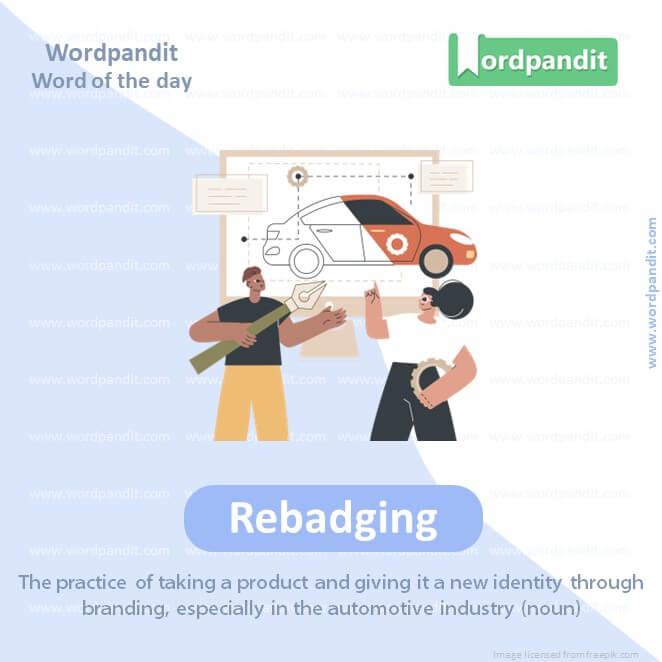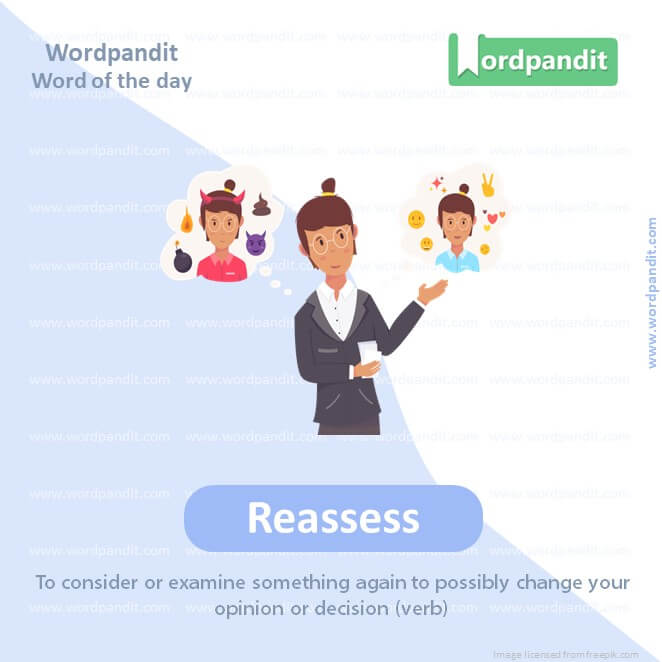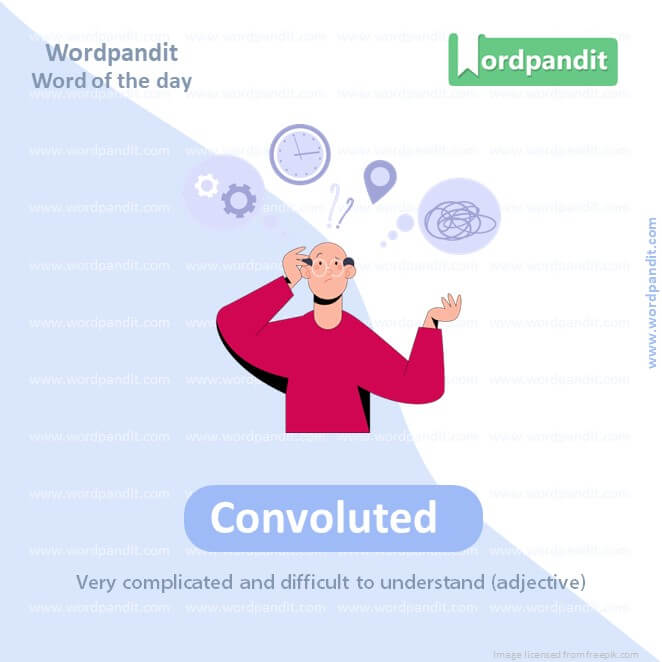Daily Vocabulary Words: List of Daily Used Words in Leading Indian Newspapers
Hi there. Welcome to this special section @ Wordpandit. Our endeavour here is straightforward: highlighting daily vocabulary words that you would come across in leading newspapers in the country. We have included the following newspapers in our selection:
• The Times of India
• The Economic Times
• Hindustan Times
• Mint
• Indian Express
We are putting in extensive work to develop your vocabulary. All you have to do is be regular with this section and check out this post daily. This is your repository of commonly used words; essentially, we are posting a list of daily used words. Hence, this has significant practical application as it teaches you words that are commonly used in leading publications mentioned above.
Visit the website daily to learn words from leading Indian newspapers.
WORD-1: CAUTIONARY
CONTEXT: WeWork’s 13-year journey from a startup to $47 billion valuation four years ago and bankruptcy last week is a cautionary tale of what entrepreneurship is not.
SOURCE: Indian Express
EXPLANATORY PARAGRAPH: “Cautionary” is like a warning to be careful or to avoid making a mistake. It’s like when a story teaches you not to do something because it might not be safe.
MEANING: Serving as a warning (adjective).
PRONUNCIATION: KAW-shuh-ner-ee
SYNONYMS: Warning, Advisory, Precautionary, Alerting, Exemplary
USAGE EXAMPLES:
1. The tale was a cautionary story about greed.
2. He gave a cautionary note on the risks involved.
3. The movie served as a cautionary example.
4. Her experience was a cautionary tale for others.

WORD-2: PRESENTISM
CONTEXT: WeWork’s bankruptcy is a child of presentism about markets, strategy, capital, governance, and sustainability.
SOURCE: Indian Express
EXPLANATORY PARAGRAPH: “Presentism” is like looking at old things but thinking about them like they are happening now. It’s like thinking about how people lived a long time ago but using what you know today.
MEANING: The tendency to interpret past events in terms of modern values and concepts (noun).
PRONUNCIATION: PREZ-uhn-tiz-uhm
SYNONYMS: Anachronism, Modern Bias, Current-Day Attitude, Contemporary Relevance, Nowism
USAGE EXAMPLES:
1. The historian was criticized for presentism in his book.
2. Presentism can distort our understanding of history.
3. She avoided presentism in her analysis of the ancient text.
4. Understanding presentism is important in historical studies.

WORD-3: ARBITRAGE
CONTEXT: It replaced the product market, fit with customer subsidies and risky arbitrage between long and short leases, where WeWork bore all the duration risk.
SOURCE: Hindustan Times
EXPLANATORY PARAGRAPH: “Arbitrage” is like buying something in one place where it’s cheap and selling it in another place where it’s expensive to make a profit. It’s like buying a toy at one store for a low price and selling it to someone else for a higher price.
MEANING: The simultaneous buying and selling of assets in different markets to profit from price differences (noun).
PRONUNCIATION: AR-bih-trahj
SYNONYMS: Trading, Speculation, Hedging, Financial Strategy, Spread Trading
USAGE EXAMPLES:
1. He made money through currency arbitrage.
2. Arbitrage is a common practice in stock markets.
3. The investor used arbitrage to take advantage of price differences.
4. Online platforms have made arbitrage more accessible.

WORD-4: REBADGING
CONTEXT: WeWork weaponised delusion by rebadging a property-leasing company as a “tech-enabled physical, social network” whose mission to “elevate the world’s consciousness” would “transform how people work and live”.
SOURCE: Times of India
EXPLANATORY PARAGRAPH: “Rebadging” is like changing the name or logo on a thing to make it look like it’s from a different company. It’s like putting a different sticker on your toy to make it look like it’s from another brand.
MEANING: The practice of taking a product and giving it a new identity through branding, especially in the automotive industry (noun).
PRONUNCIATION: ree-BADJ-ing
SYNONYMS: Branding, Relabeling, Renaming, Repackaging, Brand Conversion
USAGE EXAMPLES:
1. The car was just a rebadging of an older model.
2. Rebadging can save companies on development costs.
3. They noticed the smartphone was a rebadging of a different brand.
4. Rebadging is common in the automobile industry.
WORD-5: ADHERENCE
CONTEXT: we must recognise that ensuring treatment adherence is paramount, and we cannot afford shortage.
SOURCE: Hindustan Times
EXPLANATORY PARAGRAPH: “Adherence” is like sticking closely to the rules or what you are supposed to do. It’s like following the instructions to build a toy exactly as they are written.
MEANING: The act of following or sticking to a set of rules, beliefs, or practices (noun).
PRONUNCIATION: ad-HEER-uhns
SYNONYMS: Compliance, Observance, Conformity, Obedience, Allegiance
USAGE EXAMPLES:
1. Adherence to the diet was essential for its success.
2. The school insists on strict adherence to the rules.
3. His adherence to the schedule was impressive.
4. The project’s success depended on adherence to the plan.

WORD-6: REASSESS
CONTEXT: It is time to reassess our action plan for the TB programme.
SOURCE: Hindustan Times
EXPLANATORY PARAGRAPH: “Reassess” is like looking at something again to decide if you still think the same about it. It’s like checking your answer on a test to make sure you still think it’s right.
MEANING: To consider or examine something again to possibly change your opinion or decision (verb).
PRONUNCIATION: ree-uh-SESS
SYNONYMS: Reevaluate, Review, Reconsider, Reexamine, Reappraise
USAGE EXAMPLES:
1. He needed to reassess his strategy.
2. After the failure, they reassessed their approach.
3. The team decided to reassess the project’s goals.
4. It’s important to reassess your priorities regularly.

WORD-7: CONVOLUTED
CONTEXT: Where does a victim of crime stand in this highly convoluted justice system.
SOURCE: Hindustan Times
EXPLANATORY PARAGRAPH: “Convoluted” is when something is very complicated or hard to understand. It’s like a puzzle that has too many pieces and is really hard to put together.
MEANING: Very complicated and difficult to understand (adjective).
PRONUNCIATION: KON-vuh-loo-tid
SYNONYMS: Complex, Complicated, Intricate, Elaborate, Confusing
USAGE EXAMPLES:
1. The plot of the movie was too convoluted.
2. He gave a convoluted explanation that confused everyone.
3. The convoluted instructions were hard to follow.
4. The legal language in the document was convoluted.
WORD-8: ACQUITTALS
CONTEXT: the study found more court dismissals and delays in trials and more acquittals and lower conviction rate in cases where women are complainants.
SOURCE: Hindustan Times
EXPLANATORY PARAGRAPH: “Acquittals” are when someone is declared not guilty in a court. It’s like if someone thought you did something wrong, but then it was proven that you didn’t do it.
MEANING: Formal declarations that someone is not guilty of a criminal charge (noun).
PRONUNCIATION: uh-KWIT-ulz
SYNONYMS: Exonerations, Clearings, Discharges, Absolutions, Releases
USAGE EXAMPLES:
1. The jury returned a verdict of acquittals for all defendants.
2. His acquittal was a relief to his family.
3. There were several high-profile acquittals this year.
4. The evidence led to his acquittal.
WORD-9: DELIMITATION
CONTEXT: Adhiniyam is let down by its reliance on the delimitation process
SOURCE: Indian Express
EXPLANATORY PARAGRAPH: “Delimitation” is like drawing a line to show where something ends and something else begins. It’s like when you use a fence to show where your yard ends.
MEANING: The action of fixing the boundary or limits of something (noun).
PRONUNCIATION: dee-lim-uh-TAY-shuhn
SYNONYMS: Demarcation, Definition, Boundary Setting, Limitation, Bordering
USAGE EXAMPLES:
1. The delimitation of the property was completed yesterday.
2. There was a dispute over the delimitation of the two countries.
3. The new project required clear delimitation of responsibilities.
4. The delimitation of the fishing zones caused controversy.
WORD-10: STIPULATION
CONTEXT: The constitutional amendment bears an important stipulation: Its execution hinges on the successful conclusion of a delimitation process set for 2026
SOURCE: Indian Express
EXPLANATORY PARAGRAPH: “Stipulation” is like a special rule or condition that you agree to when you make a deal. It’s like saying you’ll only trade your toy car for a toy truck if the truck is blue.
MEANING: A condition or requirement that is specified or demanded as part of an agreement (noun).
PRONUNCIATION: stih-pyoo-LAY-shuhn
SYNONYMS: Condition, Requirement, Provision, Term, Clause
USAGE EXAMPLES:
1. The contract had several stipulations.
2. He agreed to the job with the stipulation that he could work remotely.
3. The stipulation of the agreement was clear.
4. They added a stipulation to the deal at the last minute.
vocabulary diary
The traditional method of expanding your vocabulary has always involved reading extensively and learning new words as you go. In the digital age, however, a more personalized, engaging, and effective tool has emerged on the scene – the ‘vocabulary diary’. This journal-like tool is an innovative approach to language learning that guarantees significant improvement in one’s linguistic prowess and expressive ability.
A vocabulary diary enables systematic learning with a structured approach. Rather than stumbling upon new words haphazardly, you deliberately focus on new and intriguing words that catch your attention. These words are then recorded in your vocabulary diary, creating a personalized dictionary that keeps expanding.
Learning with a vocabulary diary is not about rote memorization. It’s about understanding, application, and repeated usage. When you stumble across a novel term, jot it down in your vocabulary diary along with its meaning, synonyms, antonyms, and an example sentence. This will help reinforce your understanding and contextually anchor the new word in your memory.
Using your vocabulary diary regularly also allows for review and revision. You can revisit previously learned words, ensuring they’ve been effectively embedded in your everyday vocabulary. Furthermore, having a dedicated section for phrases or idioms can enhance your language proficiency beyond single words.
However, the success of your vocabulary diary depends on consistent and devoted use. Make it a part of your daily routine. After all, the vocabulary diary is not just a static record of words; it’s a living, evolving document that mirrors your linguistic growth. It requires attention and careful nurturing.
In conclusion, the vocabulary diary offers a comprehensive and individualized approach to vocabulary enhancement. It bridges the gap between passive reading and active learning, transforming the way we perceive word acquisition. Embrace the vocabulary diary not only as a tool for intellectual growth but also as an enjoyable and fulfilling literary adventure.













